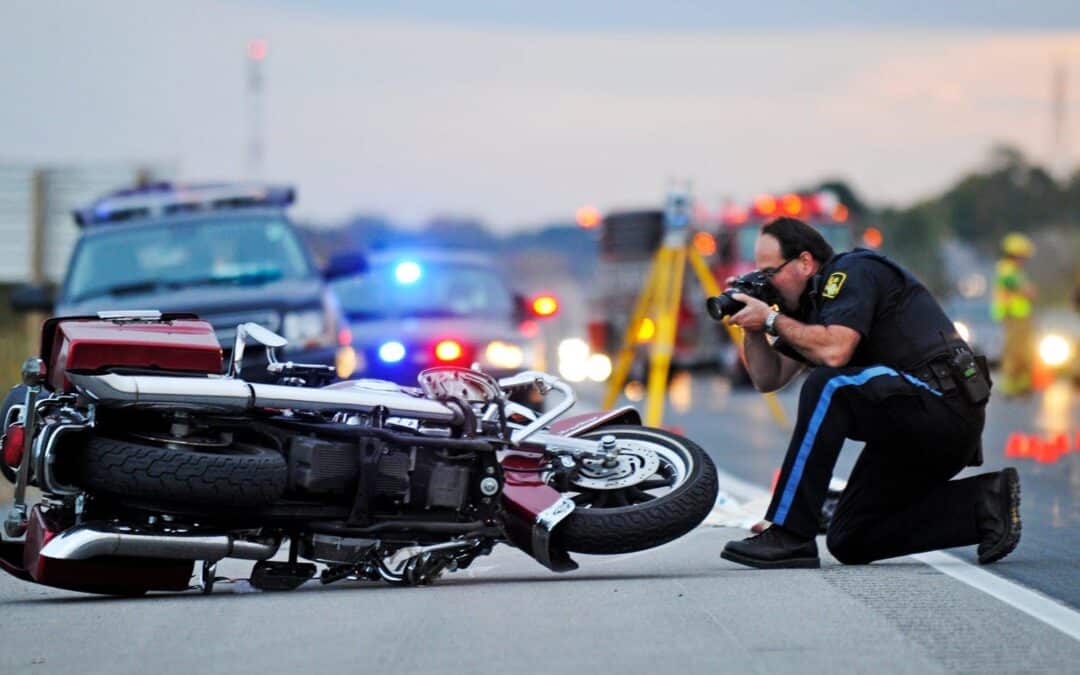Motorcycle accidents are not only physically devastating but can also leave a lasting emotional toll on victims. Emotional distress—such as anxiety, depression, and post-traumatic stress disorder (PTSD)—is a real and significant consequence of these traumatic events. While most personal injury claims focus on physical injuries and financial losses, emotional distress is an important aspect of damages that can be pursued in a motorcycle accident claim. This article explores how emotional distress is factored into personal injury claims and what you need to prove to recover compensation.
Understanding Emotional Distress in Motorcycle Accident Claims
Emotional distress refers to the psychological suffering caused by the trauma of an accident. Unlike physical injuries, emotional distress is less tangible but can have an equally profound impact on a victim’s life.
Examples of Emotional Distress:
- Persistent anxiety or fear, particularly when driving or riding
- Depression or feelings of hopelessness
- Nightmares, flashbacks, or other symptoms of PTSD
- Difficulty maintaining relationships or enjoying daily activities
Can Emotional Distress Be Compensated?
Yes, emotional distress is a recognized form of non-economic damages in personal injury claims. While economic damages—such as medical bills and lost wages—are easier to quantify, non-economic damages like emotional distress require more nuanced evidence and legal advocacy.
Types of Non-Economic Damages:
- Pain and Suffering: Includes both physical pain and emotional distress resulting from the accident.
- Loss of Enjoyment of Life: Compensates for a diminished ability to engage in activities that once brought joy.
- Emotional Distress: Specifically addresses psychological harm caused by the accident.
Proving Emotional Distress in a Motorcycle Accident Claim
To recover compensation for emotional distress, you must provide evidence that demonstrates the extent of your suffering and its connection to the accident.
Key Elements to Prove Emotional Distress:
- Causation: Show that the emotional distress directly resulted from the motorcycle accident.
- Severity: Demonstrate that the distress has significantly impacted your daily life, relationships, or ability to work.
- Duration: Prove that the emotional distress is ongoing or has lasted for a considerable time.
Evidence to Support Emotional Distress Claims:
- Medical Records: Diagnosis and treatment by mental health professionals, such as therapists or psychiatrists, can substantiate your claim.
- Personal Testimony: Your account of how the accident has affected your emotional well-being and daily life.
- Witness Statements: Testimony from friends, family, or co-workers who have observed changes in your behavior or mental state.
- Documentation: Keep a journal detailing your emotional struggles, including anxiety, depression, and difficulties you face due to the accident.
Challenges in Pursuing Emotional Distress Claims
Unlike physical injuries, emotional distress is not visible, making it more challenging to prove. Insurance companies may downplay the significance of your psychological suffering or argue that it was pre-existing. This is why working with an experienced attorney is crucial to build a compelling case.
How ECD Law Can Help
At ECD Law, we understand that emotional distress is a real and serious consequence of motorcycle accidents. Our team is dedicated to helping victims recover compensation that reflects both their physical and psychological suffering. We provide compassionate guidance and aggressive representation to ensure that all aspects of your damages are considered.
How We Support Your Claim:
- Comprehensive Case Evaluation: We’ll assess the emotional and physical impact of your accident.
- Evidence Collection: From medical records to expert testimony, we’ll gather the necessary proof to strengthen your case.
- Negotiation: We’ll handle discussions with insurance companies to secure a fair settlement.
- Trial Representation: If a settlement cannot be reached, we’re prepared to advocate for you in court.

